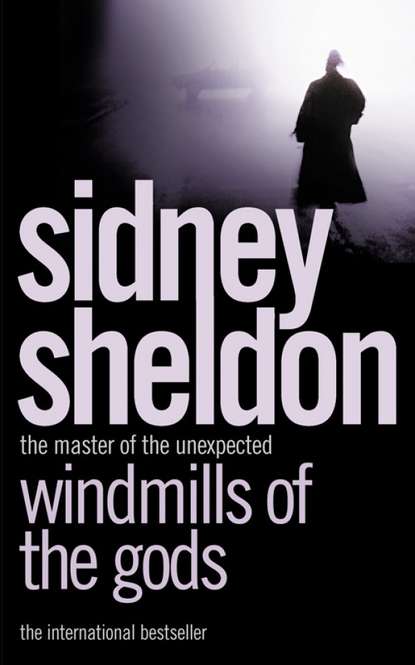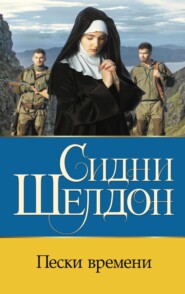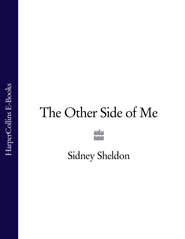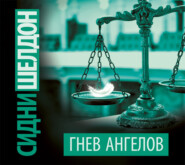По всем вопросам обращайтесь на: info@litportal.ru
(©) 2003-2025.
✖
Windmills of the Gods
Автор
Год написания книги
2018
Настройки чтения
Размер шрифта
Высота строк
Поля
‘We really must travel next year,’ Mary said to Edward shortly after they were married. ‘I’m dying to see Rome and Paris and Romania.’
‘So am I. It’s a date. Next summer.’
But that following summer Beth was born, and Edward was caught up in his work at the Geary Community Hospital. Two years later, Tim was born. Mary had taken her Ph.D. and gone back to teaching at Kansas State University, and somehow the years had melted away. Except for brief trips to Chicago, Atlanta and Denver, Mary had never been out of the State of Kansas.
One day, she promised herself. One day …
Mary gathered her notes together and glanced out of the window. Frost had painted the window a winter grey, and it was beginning to snow again. Mary put on her lined leather coat and a red, woollen scarf and headed towards the Vattier Street entrance, where she parked her car.
The campus was huge, 315 acres, dotted with 87 buildings, including laboratories, theatres and chapels, amid a rustic setting of trees and grass. From a distance, the brown limestone buildings of the University resembled ancient castles, with turrets at the top, ready to repel enemy hordes. As Mary passed Denison Hall, a stranger with a Nikon camera was walking towards her. He aimed the camera at the building and pressed the shutter. Mary was in the foreground of the picture. I should have got out of his way, she thought. I’ve spoiled his picture.
One hour later, the negative of the photograph was on its way to Washington, D.C.
Every town has its own distinctive rhythm, a life pulse that springs from the people and the land. Junction City, in Geary County, is a farm community (population 20,381), 130 miles west of Kansas City, priding itself on being the geographical centre of the continental United States. It has a newspaper – the Daily Union – a radio station, and a television station. The downtown shopping area consists of a series of scattered stores and gas stations along 6th Street and on Washington. There is a Penney’s, the First National Bank, a Domino Pizza, Flower Jeweller’s, and a Woolworth’s. There are fast food chains, a bus station, a menswear shop, and a liquor store – the type of establishments that are xeroxed in hundreds of small towns across the United States. But the residents of Junction City loved it for its bucolic peace and tranquillity. On weekdays, at least. Weekends, Junction City became the Rest and Recreation Centre for the soldiers at nearby Fort Riley.
Mary Ashley stopped to shop for dinner at Dillon’s Market on her way home and then headed north towards Old Milford Road, a lovely residential area overlooking a lake. Oak and elm trees lined the left side of the road, while on the right side were beautiful houses variously made of stone, brick or wood.
The Ashley house was a two-storey stone house set in the middle of gently rolling hills. The house had been bought by Dr Edward Ashley and his bride thirteen years earlier. It consisted of a large living room, a dining room, library, breakfast room and kitchen downstairs and a master suite and two additional bedrooms upstairs.
‘It’s awfully large for just two people,’ Mary Ashley had protested.
Edward had taken her into his arms and held her close. ‘Who said it’s going to be for only two people?’
When Mary arrived home from the University, Tim and Beth were waiting to greet her.
‘Guess what?’ Tim said. ‘We’re going to have our pictures in the paper!’
‘Help me put away the groceries,’ Mary said. ‘What paper?’
‘The man didn’t say, but he took our pictures and he said we’d hear from him.’
Mary stopped and turned to look at her son. ‘Did this man say why?’
‘No,’ Tim said, ‘but he sure had a nifty Nikon.’
On Sunday, Mary celebrated – although that was not the word that sprang to mind – her thirty-fifth birthday. Edward had arranged for a surprise party for her at the country club. Their neighbours, Florence and Douglas Schiffer, and four other couples were waiting for her. Edward was as delighted as a small child at the look of amazement on Mary’s face when she walked into the club and saw the festive table and the happy birthday banner. She did not have the heart to tell him that she had known about the party for the past two weeks. She adored Edward. And why not? Who wouldn’t? He was attractive and intelligent and caring. His grandfather and father had been doctors, and it had never occurred to Edward to be anything else. He was the best surgeon in Junction City, a good father, and a wonderful husband.
As Mary blew out the candles on her birthday cake, she looked across at Edward and thought: How lucky can a lady be?
Monday morning, Mary awoke with a hangover. There had been a lot of champagne toasts the night before, and she was not used to drinking alcohol. It took an effort to get out of bed. That champagne done me in. Never again, she promised herself.
She eased her way downstairs and gingerly set about preparing breakfast for the children, trying to ignore the pounding in her head.
‘Champagne,’ Mary groaned, ‘is France’s vengeance against us.’
Beth walked into the room carrying an armful of books. ‘Who are you talking to, Mother?’
‘Myself.’
‘That’s weird.’
‘When you’re right, you’re right.’ Mary put a box of cereal on the table. ‘I bought a new cereal for you. You’re going to like it.’
Beth sat down at the kitchen table and studied the label on the cereal box. ‘I can’t eat this. You’re trying to kill me.’
‘Don’t put any ideas in my head,’ her mother cautioned. ‘Would you please eat your breakfast?’
Tim, her ten-year-old, ran into the kitchen. He slid into a chair at the table and said, ‘I’ll have bacon and eggs.’
‘Whatever happened to good morning?’ Mary asked.
‘Good morning. I’ll have bacon and eggs.’
‘Please.’
‘Aw, come on, Mom. I’m going to be late for school.’
‘I’m glad you mentioned that. Mrs Reynolds called me. You’re failing maths. What do you say to that?’
‘It figures.’
‘Tim, is that supposed to be a joke?’
‘I personally don’t think it’s funny,’ Beth sniffed.
He made a face at his sister. ‘If you want funny, look in the mirror.’
‘That’s enough,’ Mary said. ‘Behave yourselves.’
Her headache was getting worse.
Tim asked, ‘Can I go to the skating rink after school, Mom?’
‘You’re already skating on thin ice. You’re to come right home and study. How do you think it looks for a college professor to have a son who’s failing maths?’
‘It looks okay. You don’t teach maths.’
They talk about the terrible twos, Mary thought grimly. What about the terrible nines, tens, elevens and twelves?
Beth said, ‘Did Tim tell you he got a “D” in spelling?’
He glared at his sister. ‘Haven’t you ever heard of Mark Twain?’
‘What does Mark Twain have to do with this?’ Mary asked.
‘Mark Twain said he has no respect for a man who can only spell a word one way.’
We can’t win, Mary thought. They’re smarter than we are.

















